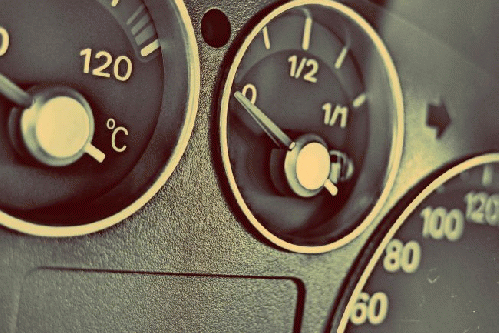gle's Street View cars roam the countryside and snap photos of local areas from roadways. These photos are then stitched together and uploaded to Google's Maps service.
When you look up a location or area using Google Maps and you select the street view option the photos you see were snapped by the Street View cars.
Well, it turns out that Google's Street View cars will be capturing a whole lot more than photos from the road. Apparently,
Google teamed up with Aclima to outfit the vehicles with environmental sensors that can measure the air quality around them. This will allow us to better identify which areas are wracked with pollution, and which ones have more fresh, breathable air.
The sensors can detect a wide variety of pollutants like carbon dioxide, black carbon, methane, particulate matter and more. Such information is then assigned on a block by block basis to the area in which the cars are surveying.
Karin Tuxen-Bettman, a program manager for Google Earth Outreach, said, "We hope this information will enable more people to be aware of how our cities live and breathe and join the dialogue on how to make improvements to air quality."
The idea behind the partnership -- and the technology used -- is to collect enough data to pass off to environmental scientists and the related communities so these organizations can take action depending on the amount of pollution in the local area.
The primary focus is on urban centers and environments, in the hopes that eventually we'll better understand how pollution affects our most populated city centers.
How Do They Know This Will Work?
Google and Aclima actually conducted a trial in Denver with the new technology. Three vehicles drove around the local area -- for a total of 750 hours -- measuring data with the related air quality sensors. NASA and the EPA were part of the event, as they're conducting a study on collecting air quality data in which they hope to find more efficient ways to do so.
According to Aclima, the Denver trial was nothing more than a proof of concept. They published some of the findings from the survey
on their website.
Aclima wants to perfect the technology and then eventually outfit Google's Street View vehicles with the sensors to collect data anywhere they drive. Of course, Google would have to agree to such a thing before it could be carried out on a grand scale.
Imagine, for a moment, if these sensors were actually equipped on self-driving cars. Generally, self-driving vehicles are already well-connected and transmitting information to a cloud-based system. And, in the past, Google's self-driving cars drove approximately
700,000 accident-free miles. If these air pollution sensors were equipped on those vehicles, we could learn a whole lot more about the areas where we live and the information would be available almost immediately.
If and when these sensors are outfitted on every Google Street View car, they will collect data occasionally in different areas. If the sensors are equipped on self-driving vehicles that are constantly on the road, we'd get a much better picture of pollution ratings in an area and how they change over time. That kind of information might be just as important -- if not more so -- than what Aclima and Google are collecting now.
For now, Denver remains the only place where this technology has been utilized. It will be interesting to see what other case studies are undertaken in the next few years.
Kayla Matthews is an IT journalist and blogger. You can also find her work on The Huffington Post and MakeUseOf.





